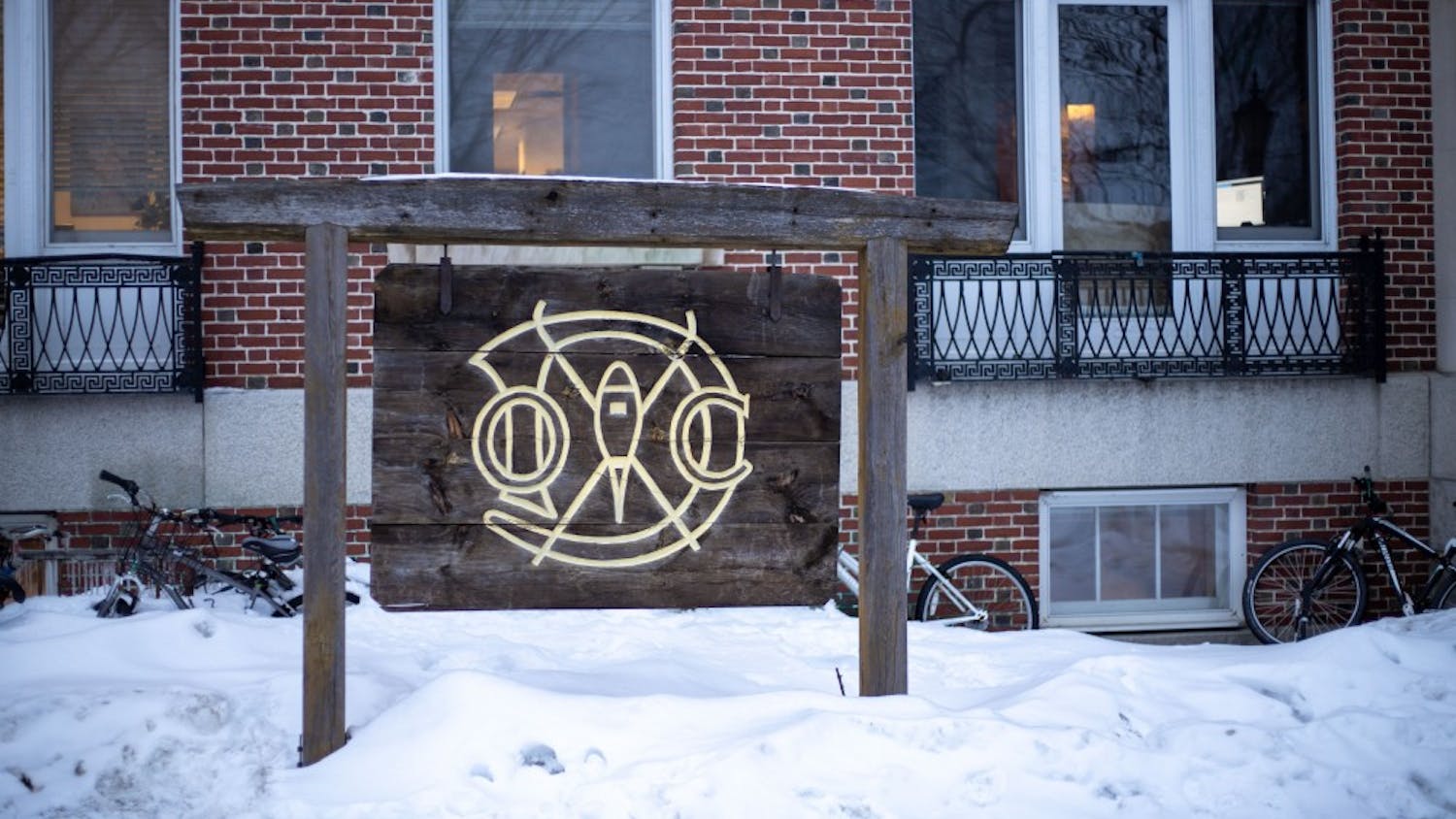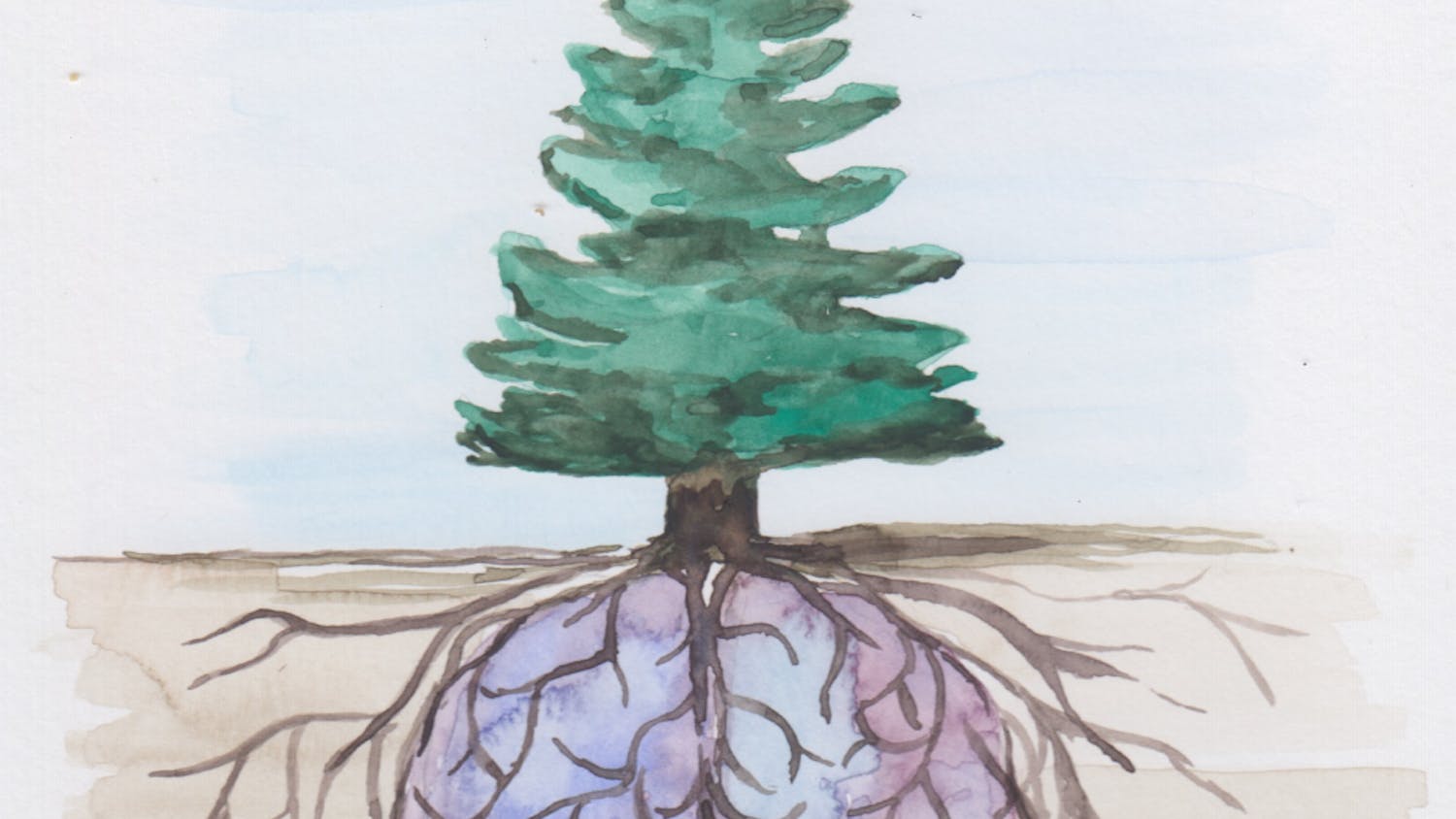For many students, Dartmouth is a place of ever-present change. For generations of students and alumni, four years at Dartmouth can be profoundly transformative.
Yet amidst so much change, Cabin and Trail, a sub-club of the Dartmouth Outing Club, has remained, helping many students find meaning, continuity and lasting friendships during their time at Dartmouth. The organization’s hundredth birthday is approaching.
Several of the students who count Cabin and Trail among the most important influences during their years at Dartmouth include Kevin Donohue ’21, Rachel Kent ’21, Maya Khanna ’22, and Elijah Laird ’21. It is for this reason that Donohue, Kent, Khanna, and Laird are helping to plan the Centennial celebration for Cabin and Trail, which the club has dubbed “CnTennial” in recognition of Cabin and Trail’s long-running nickname, “CnT.”
Donohue, one of the chairs of CnT, views his involvement in CnT as one of the highlights of his time at Dartmouth, and his experiences have inspired him to take on leadership roles within the organization.
“Cabin and Trail has been the home that I found at Dartmouth,” said Donohue, who first got involved with CnT during his freshman year. “All of the work that I’ve done since then [has focused on] trying to make that happen for other people.”
Kent, who serves as a co-chair of CnT alongside Donohue, said that CnT has likewise become a focal point of her time at Dartmouth, largely because of the friendships she has created with fellow members.
“I knew coming to Dartmouth that I wanted to be involved in the outdoors,” Kent said. “I didn’t think this would be the primary place where I would spend my time at Dartmouth, but it quickly became that because of the people and how welcome I felt. I have since worked hard to make this a space where other students can feel and experience that.”
CnT was founded on June 4, 1920 by Sherman Adams, a 1920 Dartmouth graduate who would later serve as the governor of New Hampshire from 1949 to 1953 and as White House chief of staff for President Dwight D. Eisenhower. Adams founded the organization to represent the DoC to the College and recruit new members, among other goals. The first 34 members of the organization included members of the classes of 1920, 1921 and 1922. Eventually, CnT became a sub-club under the broader DOC.
Much like a century ago, CnT’s leadership and members include ’20s, ’21s and ’22s. But, according to Khanna and Laird, Cabin and Trail plans to focus a significant portion of its CnTennial celebration on helping welcome students from all corners of campus into the club, especially incoming ’23s and students who are not currently involved in the outdoors.
According to Khanna, Laird, Donohue and Kent, CnT intends to start celebrating CnTennial in the fall and host the celebration’s peak programs during the winter and spring of 2020. Laird said that CnTennial’s opening celebration will likely take place at the DOC Clubhouse on Occom Pond, while the closing ceremony will tentatively be held at the Moosilauke Ravine Lodge and will be “reflective” in nature. CnT also hopes to plan some special break trips during CnTennial. In addition, CnTennial’s organizers plan to create a photo project about CnT’s history.
Donohue believes that efforts to enjoy the outdoors are central to CnTennial.
“I think that the best way for people to get involved in CnTennial is to go on a hike and sleep in a cabin,” Donohue said. “People have been doing that at Dartmouth for over 100 years and these are great experiences.”
Khanna, with help from Kent and other members, is leading the committee’s effort to examine logbooks in the DOC’s cabins, which have some entries that date back to the 1920s and 1930s. Khanna and her fellow researchers are searching for entries in the logbooks that are “in some way, significant.” For example, they have found entries at the DOC’s cabins from conservative political commentator Dinesh D’Souza ’83, former Outdoor Programs Office director Tim Burdick ’89 and OPO employee Rory Gawler ’05.
Kent noticed while examining the earliest logbooks that nearly all of the entries in the DOC’s cabins during the 1920s and 1930s were written by men, who occasionally brought their wives with them. Until co-education in 1972, CnT was exclusively composed of men.
“[These entries were] a reminder that CnT, and Dartmouth more generally, has not always been welcoming to women,” Kent said. “What that means is that CnT, and the DOC in general, [used to be] an all-boys club.”
Kent added that gender norms have long defined individuals’ perspectives and experiences in the outdoors.
Kent said that while masculine qualities have long been celebrated in the outdoors, it was important to start recognizing and valuing feminine qualities as well.
Nevertheless, Khanna and Kent pointed out that in recent decades, women have become integral members and leaders of Cabin and Trail. Women who serve in leadership positions in CnT are evidence of that progress, they said.
“Some of the most admirable and competent individuals that I’ve worked with in the club have been women,” Kent said. “We have definitely made progress in opening the DOC to women [through sub-clubs such as] CnT, Women in the Wilderness, and others.”
Khanna echoed Kent’s sentiments, adding that CnT and the DOC have had “many phenomenal, highly competent female leaders who have paved the way for women’s equality in both outdoor spaces and in the [greater Dartmouth community] more generally.”
Both Khanna and Kent acknowledged that more work needs to be done to make the DOC more inclusive to gender-nonconforming people and other students who have historically been excluded. They are confident, however, that CnT is on the right track.
Khanna is member of The Dartmouth staff.



